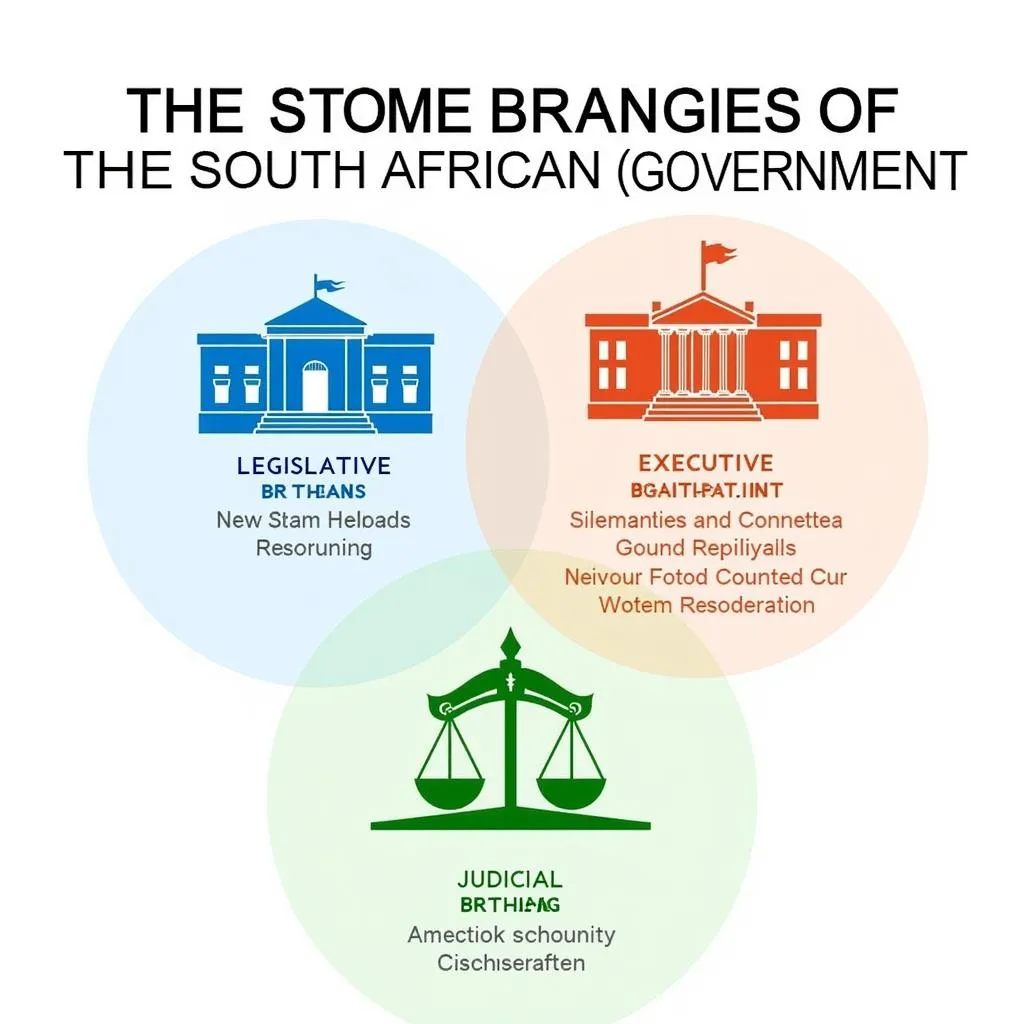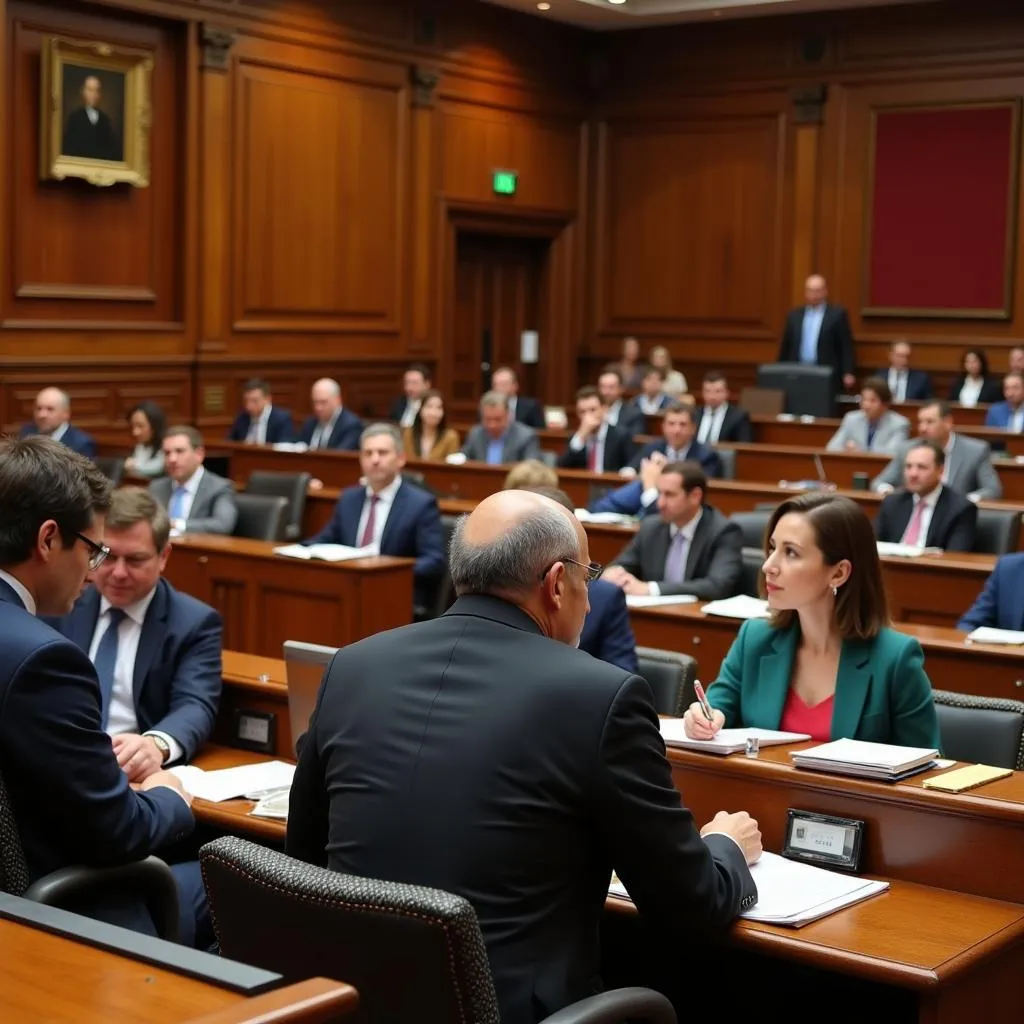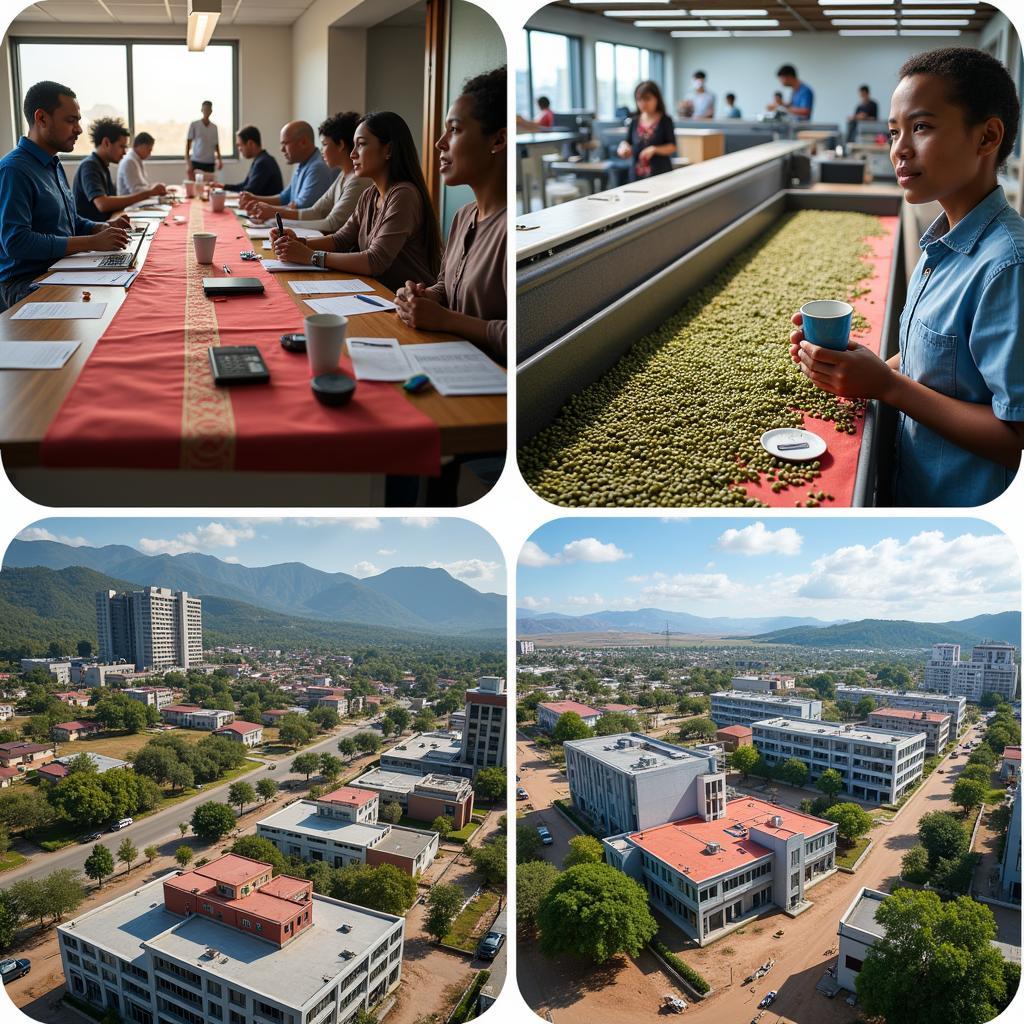Navigating the South African Government: A Comprehensive Guide
The South African Government operates within a parliamentary republic framework, boasting a multi-party system since its transition to democracy in 1994. This comprehensive guide delves into the structure, functions, and key players within the South African government, providing valuable insights for anyone interested in understanding this dynamic nation’s political landscape.
The Structure of the South African Government
South Africa’s government is structured around three branches: the legislative, executive, and judicial. This separation of powers ensures a system of checks and balances, preventing any single branch from holding absolute control.
The Legislative Branch: The Voice of the People
At the heart of the legislative branch lies the Parliament, responsible for crafting and passing laws. South Africa’s Parliament is bicameral, consisting of:
- The National Assembly: This 400-member body, elected through a system of proportional representation, represents the diverse voices of the South African people.
- The National Council of Provinces (NCOP): The NCOP comprises 90 delegates representing the nine provinces, ensuring regional interests are considered in national legislation.
The Executive Branch: Implementing the Nation’s Vision
Tasked with implementing laws and policies passed by Parliament, the executive branch is led by the President of South Africa.
- The President: Elected by the National Assembly, the President serves as both Head of State and Head of Government.
- The Deputy President: Supporting the President, the Deputy President plays a crucial role in coordinating government activities and chairing cabinet committees.
- The Cabinet: Composed of ministers appointed by the President, the Cabinet oversees various government departments and ministries, each responsible for specific areas like health, education, and finance.
 South Africa Government Branches
South Africa Government Branches
The Judicial Branch: Upholding Justice and the Constitution
South Africa’s judicial branch plays a pivotal role in upholding the Constitution, regarded as the supreme law of the land.
- The Constitutional Court: Situated at the apex of the judicial system, the Constitutional Court has the final say in matters concerning the interpretation, protection, and enforcement of the Constitution.
- The Supreme Court of Appeal: As the highest court of appeal for all other legal matters, the Supreme Court of Appeal ensures justice and fairness within the legal system.
- High Courts and Magistrates’ Courts: These courts handle a wide range of criminal and civil cases across the country, ensuring access to justice at all levels.
Key Roles and Responsibilities within the Government
Understanding the roles and responsibilities of key players within the South African government is essential for comprehending the nation’s political dynamics.
- The President: As the head of state and government, the President sets the national agenda, oversees the executive branch, and represents South Africa on the international stage.
- The Minister of Finance: Responsible for managing the national budget, fiscal policy, and economic growth, the Minister of Finance plays a critical role in shaping South Africa’s economic landscape.
- The Minister of International Relations and Cooperation: This minister spearheads South Africa’s foreign policy, diplomatic relations, and engagement with international organizations.
 Parliament Session in South Africa
Parliament Session in South Africa
Challenges and Opportunities Facing the South African Government
The South African government faces numerous challenges, including:
- Addressing Socioeconomic Inequality: Despite significant progress since apartheid, South Africa still grapples with high levels of poverty, unemployment, and inequality.
- Combating Corruption: Tackling corruption within government institutions remains a priority to ensure accountability and transparency.
- Promoting Economic Growth and Job Creation: Stimulating economic growth and creating employment opportunities are crucial for addressing poverty and inequality.
Conclusion: A Government in Progress
The South African government continues to navigate a complex landscape, striving to fulfill the aspirations of its diverse population. Despite the challenges, the government’s commitment to democratic principles, good governance, and social justice provides a foundation for a brighter future. Understanding the South African government’s structure, functions, and key players offers valuable insights into the nation’s political dynamics and its ongoing journey towards a more equitable and prosperous society.
For more information on related topics, you can explore:
Contact us for any assistance. Our contact information is as follows:
Phone Number: +255768904061
Email: kaka.mag@gmail.com
Address: Mbarali DC Mawindi, Kangaga, Tanzania
Our customer service team is available 24/7 to assist you.


